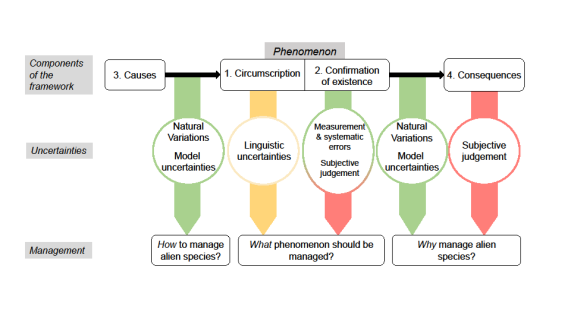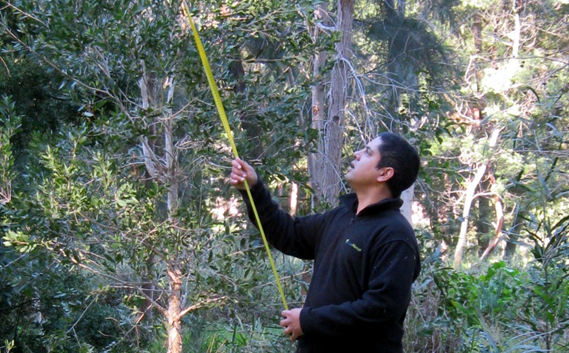26 April 2019 | By Guillaume Latombe
Uncertainty is part and parcel of any scientific field. The point of scientific research is to acquire knowledge and to deal with different types of uncertainty to improve our understanding of natural phenomena and help us make projections about the future. Being able to make such projections is particularly important in invasion science as it is necessary to design and implement sound management actions.
Invasion science is a complex field; it straddles many different disciplines, including biological, ecological and social science. This complexity makes it particularly subject to uncertainty – this is problematical for the management of invasive alien species.
As the identification of uncertainties is the first step towards their resolution, C·I·B postdoctoral fellow Guillaume Latombe and colleagues proposed a four-component classification of uncertainties in biological invasions. They elaborate on the need to (1) clearly circumscribe the phenomenon; (2) measure and provide evidence for the phenomenon (i.e., confirmation); (3) understand the mechanisms that cause the phenomenon; and (4) understand the mechanisms through which the phenomenon results in consequences.

Reflecting the complexity of the field, using multiple examples across different taxa and environments, the authors show that these issues can belong to three major types of uncertainty: linguistic (related to the way we refer to biological invasions), psychological (related to the stakeholders concerned by biological invasions) and epistemic (related to our knowledge on biological invasions). These different types of uncertainties have different effects on the management of invasive alien species, and require specific solutions to be resolved.
“While many of the uncertainties cannot be eliminated completely, we believe that using the framework proposed in this paper to explicitly identify and communicate them will facilitate better collaboration between researchers and managers, increase scientific, political, improve public support for invasion research, and provide a stronger foundation for sustainable management strategies,” explains Guillaume Latombe, lead author of the paper published in Ecosphere.
Read the paper in Ecosphere
Latombe, G., S. Canavan, H. Hirsch, C. Hui, S. Kumschick, M. M. Nsikani, L. J. Potgieter, T. B. Robinson, W.-C. Saul, S. C. Turner, J. R. U. Wilson, F. A. Yannelli, and D. M. Richardson. 2019. A four-component classification of uncertainties in biological invasions: implications for management. Ecosphere 10(4):e02669. 10.1002/ecs2.2669 https://esajournals.onlinelibrary.wiley.com/doi/10.1002/ecs2.2669
For more information, contact Guillaume Latombe at latombe.guillaume@gmail.com



